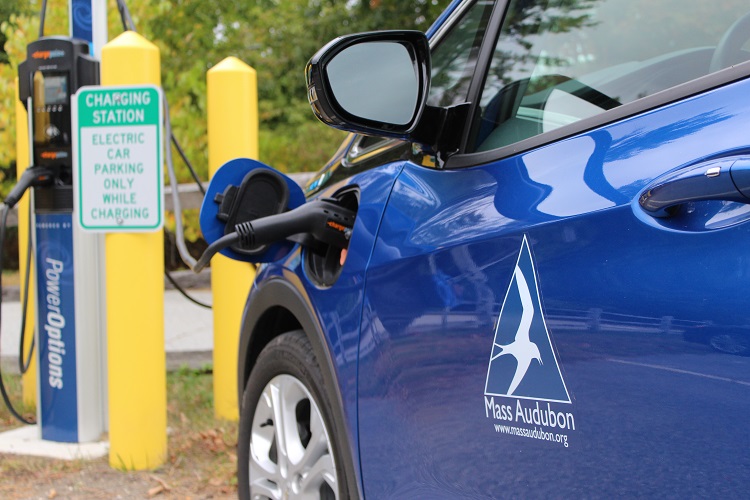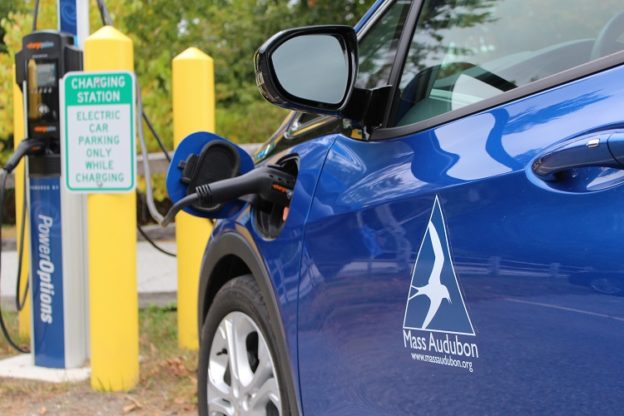You can now charge your car at your next visit to Drumlin Farm with one of our new electric vehicle charging stations.

As part of an ongoing statewide initiative at Mass Audubon to decrease carbon emissions and increase access to greener transportation options for our communities, Drumlin Farm, PowerOptions, and Eversource, collaborated on the new installation.
One of the stations was donated by the nonprofit PowerOptions, New England’s largest energy buying consortium. Eversource paid for and coordinated the infrastructure improvements needed to power the stations and installation was done by Horizon Energy. Each EVC station is capable of charging two cars, providing power for up to four vehicles at a time. Through the Chargepoint app, electric vehicle owners can set up charging at the stations through their phones.
“Drumlin Farm is proud to be making a difference in providing education and motivation for a healthier and sustainable world,” says Sanctuary Director Renata Pomponi. “With programs that reach more than 140,000 children and adults each year, we are excited about the opportunity to provide meaningful engagement and positive solutions around climate change, the critical environmental issue of our time. We are grateful for the donation from PowerOptions and the infrastructure support from Eversource to help us reach our goal of reducing our own carbon footprint and providing opportunities for our visitors to ‘drive green’ on their trips to the farm.”
In recent years, the transportation sector has surpassed power plants as the largest source of carbon dioxide emissions in the US. Unlike traditional vehicles, electric vehicles do not release any exhaust emissions when driven. This means that they not only reduce greenhouse gases in the atmosphere, they also eliminate dangerous air pollution that causes smog and other health and ecological risks. Check out Mass Audubon’s recent blog on how to green your transportation for more on how you can get involved.
Interested in learning more about climate change and how Mass Audubon is working with communities to combat it? Find more information here.


